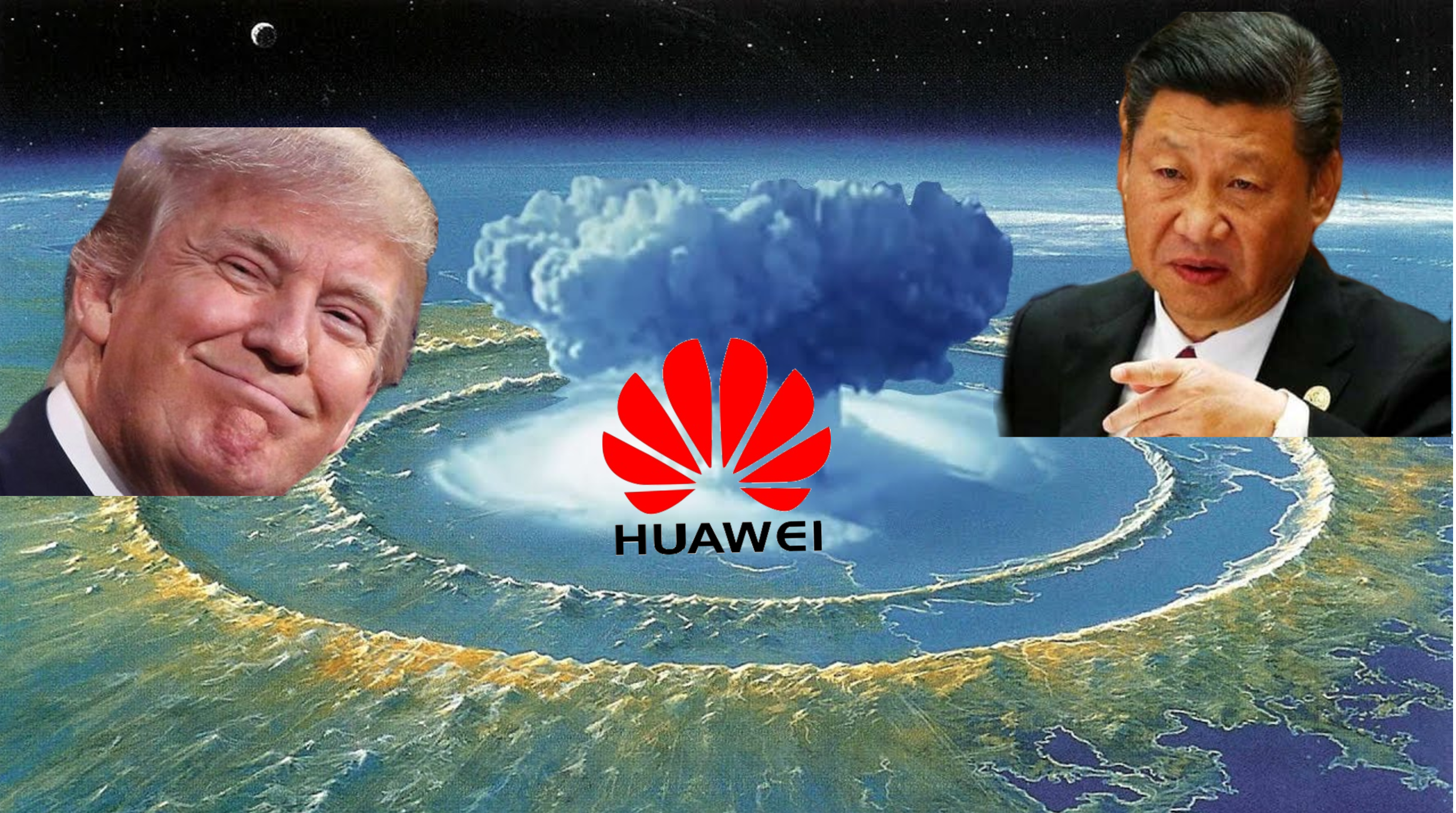America has historically never been good at dogfight with the Asian powerhouses. At least never at the onset of the fight, and that has been consistently true. You can see this over the U.S. – Japan aerial combat after the Pearl Harbor bombing where the Jap’s smaller and more efficient Mitsubishi A6M Zero planes decimated the US’s Grumman F4F Wildcats.
The same thing happened during the Korean War when China supplied its MiG-15s to their North Korean allies. The planes were 100 mph (160 km/h) faster than what the US was using in that war, the P-80 Shooting Star.
But the US always seems to have a ‘bigger gun’ card under the table. So when the dog fight was taking too long, boom, they dropped the mother of all payloads – nuclear weapons – in Hiroshima and Nagasaki. Bringing their enemies to (not their knees) crawling with their bellies.
Google has suspended business with Huawei following Trump blacklist
If there is one campaign promise the Trump administration will likely pull off, is the pledge to counter China’s growing global influence. We live in the 21st century, so we don’t expect the US and China to go full knuckle against each other; that would be so caveman.
However, the two countries are fighting ferociously behind the keyboard. Chinese telecommunication giant Huawei has over the past decade (or a little less) been growing its footprint across the globe. They even out wrested Apple at the position two global smartphone vendor.
Huawei is also leading when it comes to matters 5G network infrastructure and is currently the only logical go-to company for countries looking to deploy this next generation of wireless technology. However, the US security chiefs have maintained that the company is working at the behest of Beijing.
Claiming Huawei’s network infrastructure and devices have backdoors that would make it possible for China to spy on governments and consumers in foreign countries. The US has since moved to ban the use of any Huawei equipment across all federal institutions.
It has also urged telecommunication companies and consumers in the US not to buy Huawei products. It has also taken the same evangelism to its allies across the Atlantic and now European countries are following suit. Banning Huawei infrastructure and devices.
Despite these anti-Huawei campaigns, the company has been thriving in 40% of the World’s GDP countries. More on that here.
The US drops a digital NUKE on Huawei crippling its future operations
Yesterday on Sunday, news broke out that Alphabet Inc. the mother company of Google has decided to adhere to the US directive and has suspended business with Huawei. That is any business that will require Alphabet Inc. through its subsidiary Google, to transfer any hardware, software, or technical assistance to Huawei.
Though Huawei just like everybody else around the world can still access any open source license. That means they are still welcome to use and develop on Android. However, they can no longer access Google proprietary software Google apps.
“We are complying with the order and reviewing the implications,” said a Google spokesperson to Reuters. “For users of our services, Google Play and the security protections from Google Play Protect will continue to function on existing Huawei devices.”
So no more Gmail, PlayStore, Chrome, Google Photos, and Google Docs in the future Huawei phones. The currently available ones will still have access to Google apps. Though personally, I doubt if that will still be the same years down the line. Perhaps there will be another directive barring Google from issuing further updates and patches to Huawei aging devices that still got the service.
Business outside China will be hard for Huawei
For Huawei consumers in China, this development will likely cause no significant changes. Since Google apps are highly restricted and censored by the government domestically. However, Huawei fanbase outside China and across the world have anchored all their online activities on Google services.
It will be hard to sell a Huawei device when the buyer knows they will not be able to access their Gmail, PlayStore, Google Office Suits, YouTube, Chrome browser and other Google apps on the device. Since virtually all aspects of the internet except social media is technically run by Google.
Related: You May Be An Apple Fan, But Its Google Apps You Keep Using
Alphabet Inc. is not the only big tech companies complying with the US directive of banning Huawei. It has also emerged that Intel Corp., Qualcomm Inc., Broadcom Inc., and Xilinx Inc. have directed their employees not to supply critical software and components to Huawei until further notice.
One of Huawei’s rotating chairmen Eric Xu told Reuters during an interview held in March, “No matter what happens, the Android Community does not have any legal right to block any company from accessing its open-source license.”
It would appear the company was anticipating such a move. While Huawei will still be able to give customers outside China the Android Open Source Project (AOSP) interface. It will be an uphill task to sell to them the Google apps alternatives consumers in China have been forced to using. That is apps from companies like Baidu and Tencent.
Related: All the alleged China espionage stories we’ve featured



